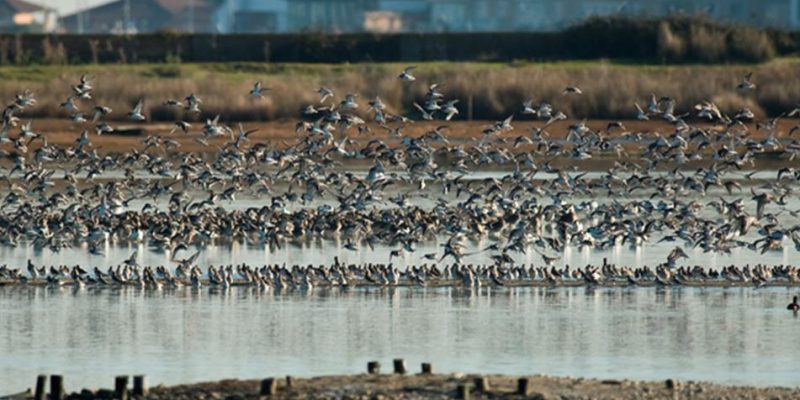By Leah Foster, Molly Burnett, Fran Williams, Suz Collins
The wildlife of Poole Harbour has defied all odds against the ongoing destructive pandemic.
Despite COVID destroying most parts of the past two years, wildlife is one of the only things to have thrived due to the lack of human disruption.
Poole Harbour, the second biggest harbour in the world, is using the negative effects of COVID positively to preserve the various species that occupy the harbour and surrounding areas of Dorset.
Brittiany Maxteb, a ranger for the RSPB at Birds at Poole Harbour,a charity completely dedicated educating people on the stunning variety of bird life in Poole, said: “I think COVID in general actually benefitted a lot of wildlife, in particular, bird species.”
She added: “It has increased the amount of money that people are putting into conservation organisation charities which has probably increased government funding that is going into it as well.”
The news of how lockdown has had a positive impact on wildlife and the environment has caused an influx of spiked interest from many people that are both residents and visitors of Poole Harbour.
There are future plans to encourage more public interest by holding public wildlife charity events in the Harbour, placing additional web cameras around Dorset to capture the new and old waves of wildlife and also a project of other species being reintroduced to try and restore species to the area.
The RSPB as a whole is facing the challenge of a largescale project attempting to battle against the placement of a Nuclear Plant development to ensure the protection of a large area of nature reserves.
Mrs Maxteb said: “We’re just starting to see the effects of climate change on species in the harbour.
“In the last 50 years, species, particularly things like water birds and migratory bird numbers have definitely decreased as the climate has warmed and they’re heading less south on their migrations.”
Although the wildlife seems to be thriving, there are still human factors that continue to damage and reverse the effects of what lockdown seemed to restore.
Watch a Birds of Poole Harbour video below regarding lockdown birding at Whitney Lake.
For more information regarding their work, visit here.


 A Broken Record: Grassroots Music in COVID-19
A Broken Record: Grassroots Music in COVID-19